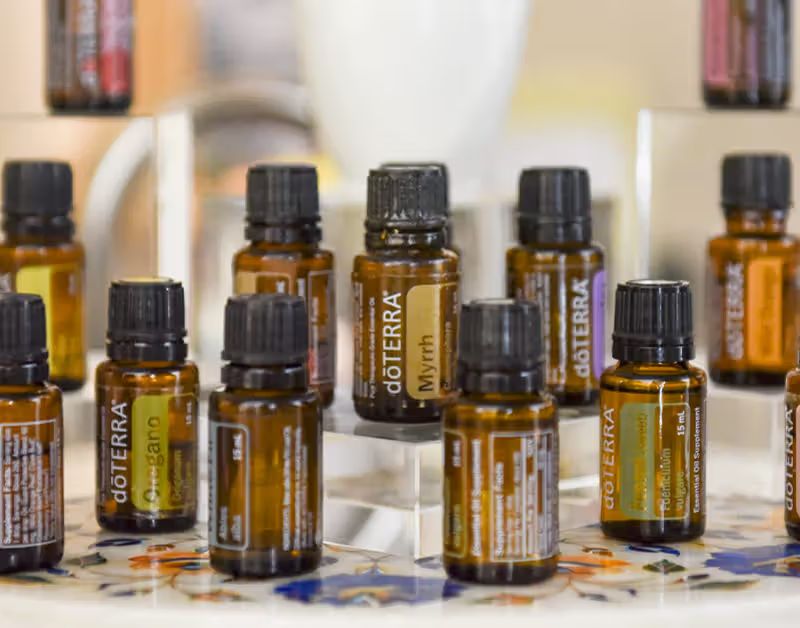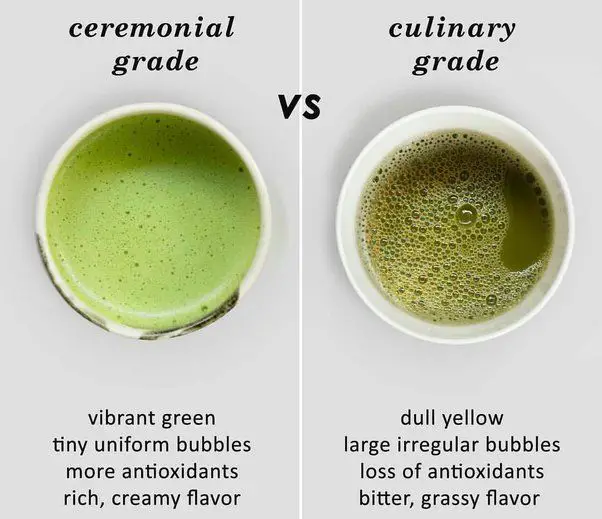What Does Smelling Myrrh Do?
What is Myrrh?
Myrrh is a fragrant resin that comes from trees in the Commiphora genus, which are native to regions such as Somalia, Ethiopia, and Yemen 1. It has a rich history dating back over 5,000 years. Myrrh was highly valued in ancient Egypt for its medicinal properties and was used for embalming mummies. It was also an important trade item throughout the Middle East and Mediterranean regions. In ancient Greek and Roman cultures, myrrh was used as a perfume and incense.
Traditionally, myrrh has been used to treat a variety of ailments. In Chinese medicine, it is considered a blood-moving medicine used to remove stagnant blood from the uterus after childbirth. Ayurvedic healers have used myrrh to treat wounds, respiratory infections, and digestive issues. Recent studies have confirmed many of myrrh’s traditional uses, finding that it has antimicrobial, anti-inflammatory, and pain-relieving effects.
Olfactory System and Smell
The olfactory system is responsible for our sense of smell. It consists of the nose, olfactory nerves, and olfactory bulb and cortex in the brain. Odor molecules in the air enter the nose and dissolve in the mucus layer of the nasal cavity. These odor molecules bind to receptor proteins on the olfactory nerves, which transmit signals to the olfactory bulb. The olfactory bulb acts as a relay station, passing the signals on to the olfactory cortex in the temporal lobe of the brain (1).
Our ability to detect and perceive different smells comes from the olfactory receptors. Humans have around 400 different odor receptor types that allow us to distinguish between a wide variety of smells. When an odor molecule binds to a receptor, it triggers a nerve impulse that travels to the brain. The combination of receptors stimulated creates a unique pattern that the brain interprets as a particular smell. This is how we are able to perceive and distinguish the complex aromas around us (2).
The olfactory cortex has extensive connections to the limbic system, which handles memory and emotion. This is why smells can trigger powerful memories and feelings. The olfactory system has direct access to the amygdala and hippocampus, allowing odor information to be processed alongside memories and emotions (3). This close link between the olfactory system and emotional centers of the brain explains why smells can have a significant effect on mood, stress levels, and cognition.
(1) https://pubmed.ncbi.nlm.nih.gov/22483679/
(2) https://www.ncbi.nlm.nih.gov/books/NBK537285/
(3) https://pubmed.ncbi.nlm.nih.gov/22483679/
Aromatherapy and Scent
Aromatherapy is the use of fragrant essential oils derived from plants to promote psychological and physical well-being. When inhaled, scent molecules travel through the nose to the olfactory system and interact with the limbic system of the brain, which controls emotions and memories. This is why certain smells can trigger emotional responses or mental associations.
Numerous studies show that smell can have effects on mood, stress levels, mental clarity, and energy. Smell is the strongest of our senses for triggering emotional memories due to the olfactory system’s direct link to the limbic system and hippocampus in the brain [1]. Pleasant natural scents from essential oils have been found to reduce tension, anxiety, depression, irritability, and other negative feelings while improving relaxation, mental clarity, and feelings of vigor [2].
Studies show smell can also impact the body physiologically through changes in heart rate, blood pressure, breathing, skin temperature, and brain wave activity. However, effects can vary based on the specific essential oil fragrance and its molecular makeup.
Effects of Smelling Myrrh
Inhaling the scent of myrrh essential oil can provide various benefits, both through documented effects as well as anecdotal reports. When myrrh essential oil is diffused into the air, the molecules are detected by olfactory receptors in the nose, which trigger neural responses in the brain.

Several studies have shown that myrrh essential oil can have relaxing effects when inhaled. One study found that diffusing myrrh oil lowered blood pressure and heart rate in rodents under stress [1]. This suggests myrrh scent may help promote calmness and relieve anxiety or tension.
There is also some evidence that inhaling myrrh oil can positively impact mood. One study revealed that diffusing myrrh oil boosted mood and energy levels in human subjects more than lavender or peppermint oils [2]. This uplifting effect may be due to compounds like furanoeudesma-1,3-diene which have been shown to act on serotonin receptors [3].
Many people also report that smelling myrrh can have a grounding, centering effect during meditation or spiritual practices. Though not extensively studied, the calming properties of myrrh scent may help aid focus and presence during contemplative activities.
Relaxation and Stress Relief
Myrrh essential oil is known for its soothing, calming, and relaxing properties. When inhaled, the aroma of myrrh oil triggers receptors in the brain that are associated with the parasympathetic nervous system, which controls relaxation and homeostasis. The woody, earthy scent helps induce relaxation and a feeling of tranquility.
Studies show that aromatherapy with essential oils like myrrh can significantly reduce anxiety, depression, and stress levels. Inhaling myrrh oil sends signals to the limbic system, the region of the brain that controls emotions and influences the nervous system. This can lower blood pressure and heart rate, calm breathing, and relieve muscle tension – all physical symptoms commonly associated with stress.
The relaxing properties of myrrh make it beneficial for meditative practices. The calming fragrance clears the mind, promotes mindfulness, and creates a peaceful environment for prayer or reflection. Myrrh has long been used in spiritual rituals for its grounding and uplifting aroma.
Effects on Mood and Emotions
The warm, earthy, and slightly sweet scent of myrrh essential oil has been shown to have uplifting and stabilizing effects on mood and emotions
Studies have demonstrated that inhaling myrrh oil triggers the olfactory system and limbic system in the brain, which is associated with processing emotions and memories (Jackson, 2022). The aroma of myrrh can promote emotional well-being and has been traditionally used to help lift melancholy, relieve anxiety, and impart a sense of spiritual awareness.
According to aromatherapy experts, myrrh oil possesses centering and grounding qualities that can counteract erratic emotional states, traumatic stress, hysteria, and chronic worry (New Directions Aromatics, 2022). When diffused or applied topically at key pulse points, myrrh essential oil helps restore emotional balance, reduce negativity, dispel apathy, and promote a calm, meditative state.
The warming and protecting energy of myrrh is said to comfort and nurture the soul during times of emotional distress. Regular use can have a cumulative effect, allowing one to remain composed and self-aware even during turbulent events.
Spiritual and Meditative Uses
Myrrh has been used in many spiritual and religious ceremonies throughout history. In Ancient Egypt, it was burned as incense during rituals and used in embalming mixtures. In Chinese medicine, myrrh was thought to enhance spirituality and spiritual healing. In Christianity, myrrh was one of the gifts brought to the baby Jesus by the three wise men. It is also used in incense and anointing oils in various Christian traditions.
Burning myrrh as incense or using myrrh essential oil during meditation is thought to have calming, centering effects on the mind and spirit. The scent of myrrh is believed to promote feelings of peace and tranquility when meditating or praying. Some people use myrrh incense or essential oil to create a contemplative environment for spiritual reflection and introspection. The aroma of myrrh has been described as uplifting yet soothing at the same time.
According to https://www.thewiccanlady.co.uk/herbal-grimoire, myrrh supports spiritual reflection, meditation, and healing. Its earthy, balsamic fragrance is thought to help create a grounded yet tranquil state for prayer or meditation.
Immunity and Respiratory Health
Myrrh has demonstrated powerful anti-inflammatory and antimicrobial properties that can benefit immunity and respiratory health. In test tube studies, myrrh exhibits strong antibacterial effects against various strains, including some drug-resistant bacteria like Staphylococcus aureus (3).
One of the active compounds in myrrh called curzerene has potent anti-inflammatory effects by inhibiting pro-inflammatory cytokines like TNF-alpha (8). This may help reduce congestion and relieve respiratory tract inflammation.
Research also shows that myrrh resin may act as an immunostimulant and expectorant during cold and flu season by strengthening the immune system against pathogens (9). One study found that myrrh oil suppressed airway inflammation in mice by regulating inflammatory immune responses (10).
The antimicrobial and anti-inflammatory properties of myrrh suggest it may aid congestion relief and strengthen immunity against respiratory infections when inhaled or used as an essential oil.
Skin Health
Myrrh oil has been used for centuries to promote smooth, youthful, and radiant skin due to its antioxidant and anti-inflammatory properties. It contains compounds called sesquiterpenes and terpenoids which are potent antioxidants that protect the skin from free radical damage and premature aging caused by UV rays, pollutants, and other environmental factors (Healthline).
Studies show that myrrh oil boosts collagen production, prevents the breakdown of existing collagen, and stimulates circulation in the skin. This helps reduce the appearance of fine lines, wrinkles, sagging skin, and age spots (New Directions Aromatics). The astringent effects of myrrh tighten pores and improve skin tone and elasticity.
Myrrh oil also aids wound healing by disinfecting cuts and scrapes and speeding up tissue regeneration. It stimulates blood flow to the area and forms a protective coating that prevents infections. Traditionally, it has been applied topically to minor wounds, rashes, and inflammatory skin conditions (Purodem).
Safety and Precautions
Although myrrh is generally considered safe when used appropriately, there are some potential side effects and safety precautions to be aware of:
Skin Sensitivity – Some people may experience skin irritation or allergic reactions from topical application of myrrh oil. It’s best to dilute myrrh oil and test it on a small area of skin first [1].
Medication Interactions – Myrrh can potentially interact with medications for diabetes, high blood pressure, and anticoagulants. Check with your doctor before using myrrh if you take any medications [2].
Proper Usage – When used internally or topically, myrrh should only be used in small doses for a limited time to avoid side effects. Follow dosage instructions carefully and discontinue use if any adverse reactions occur [1].
Pregnancy/Breastfeeding Precautions – There is insufficient research on the safety of myrrh for pregnant or breastfeeding women, so it’s best to avoid use.

